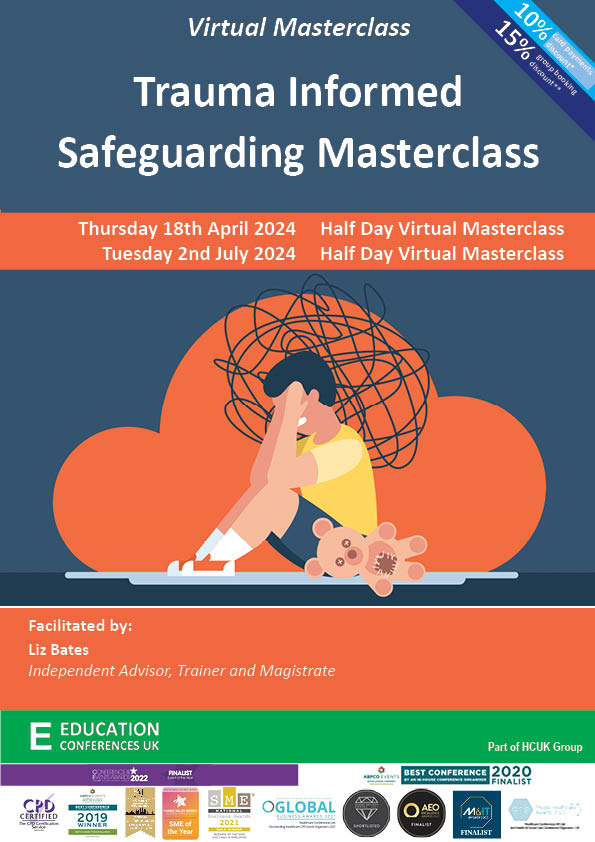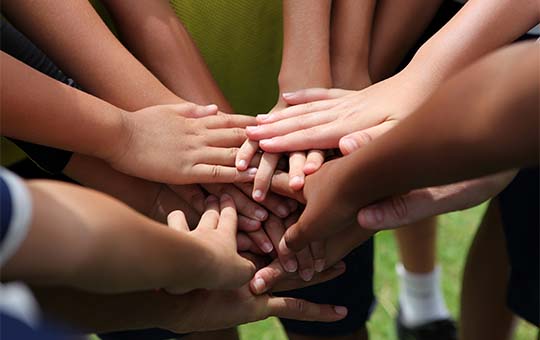Effective safeguarding is predicated on continually reflecting on our practice and increasing our knowledge and understanding in order to support the children and families in our settings. Whether the risk of harm is familial or contextual
This half day masterclass will consider how we respond to children who may be living in families with unresolved trauma, the toxic stress responses which can impact their lives and their subsequent need for sensitive, accepting and informed trusted adults. And, of course, how we create emotionally safe settings to help those children thrive rather than just survive.
There has been a marked increase in adverse experiences including family poverty, mental health issues and domestic violence. These forms of trauma maintain and extend vulnerabilities for both adults and children, leading to the need for trauma-informed responses and support for some of the children and families you work with. Understanding the impact of trauma and knowing how to adapt the way you work can make an important difference to their lives.
The repeated stress of abuse, neglect and parents struggling with mental health or substance abuse issues has real, tangible effects on the development of the brain which will impact on understanding and coping with the world as well as learning and socialising, and consequently staff awareness of this trauma is critical.
“Safeguarding and promoting the welfare of children is everyone’s responsibility. Everyone who comes into contact with children and their families has a role to play. In order to fulfil this responsibility effectively, all practitioners should make sure their approach is child centred.
This means that they should consider, at all times, what is in the best interests of the child.” (KCSIE 2023) This reminds us that all staff in your setting have a safeguarding role and I would suggest that being trauma informed cannot be separated from being ‘child-centred’ and considering ‘the best interests of the child’.
KEY LEARNING OBJECTIVES
This Masterclass will enable you to have:
Considered the breadth and depth of adversity, threat and deprivation on the lives of children and young people
Reflected on the vulnerability of those parents living with unresolved trauma and consequently the toxic stress responses which impact the lives and increase the vulnerability, of their children
Considered how trauma may feel, sound and look in the classroom
Considered the position of safeguarding in the school and creating emotionally safe settings
Explored opportunities, strategies and responses to your children and families
FACILITATOR
After working in schools for over 25 years, as a teacher and senior leader, Liz then worked as a Safeguarding Advisor for Birmingham Local Authority and later with an educational charity for 10 years. As well as leading on Mental Health, Emotional Health and Wellbeing, Liz continued to advise schools and other organisations in all aspects of Safeguarding.
Liz now works as an independent advisor working with schools and other organisations in a number of ways, such as training staff and auditing wellbeing. She has delivered presentations, workshops and research findings at national conferences. Liz is the author of 8 books, teaching sets and resources that are used across the country and internationally by schools and by other professionals working with children and has written for a number of professional journals such as ‘The Psychologist’ and the TES. Liz has worked for the Anna Freud Centre and also works as a Wellbeing Award advisor and verifier for Optimus Education. Liz is a member of the Attachment Research Community (ARC) and a Protective Behaviours associate practitioner and trainer. Liz also sits as a Magistrate in the Family Court.




